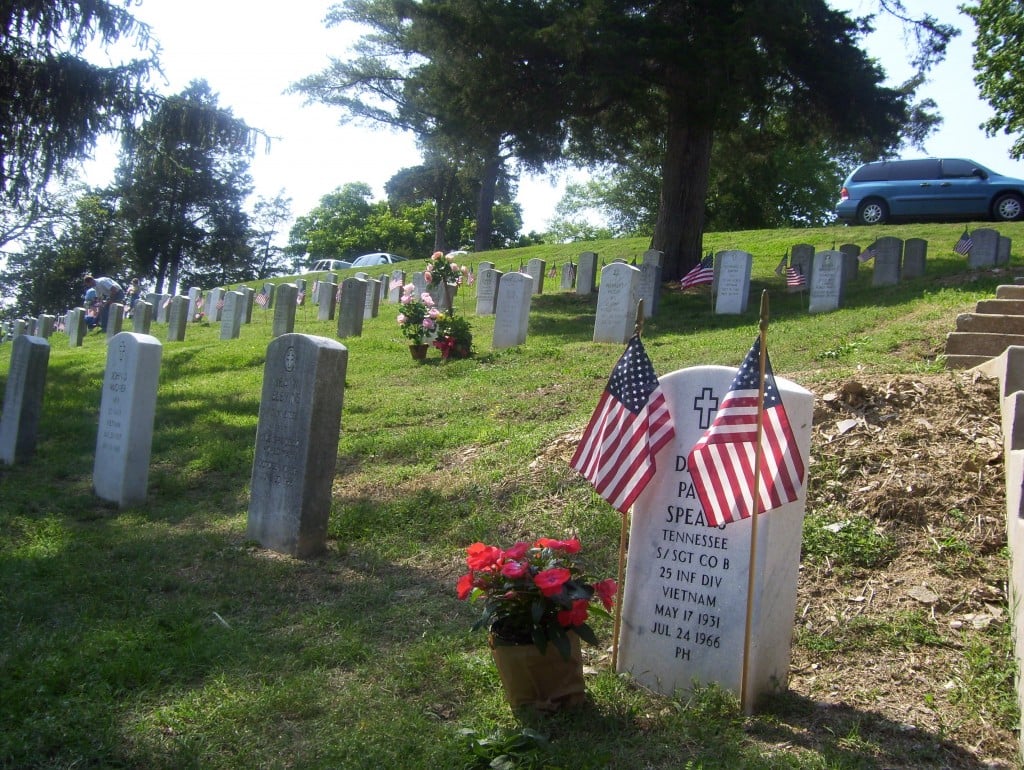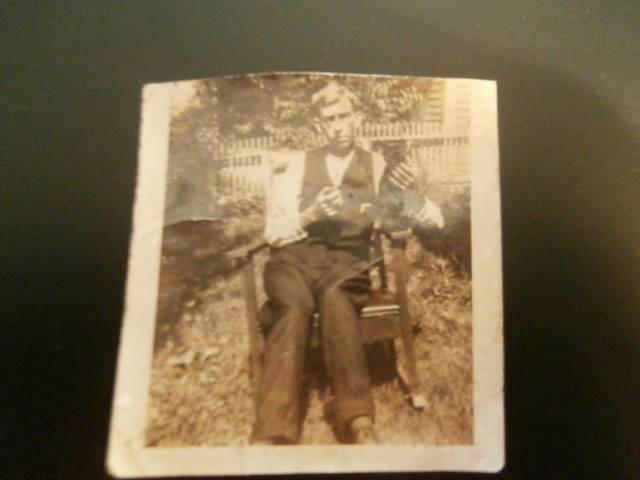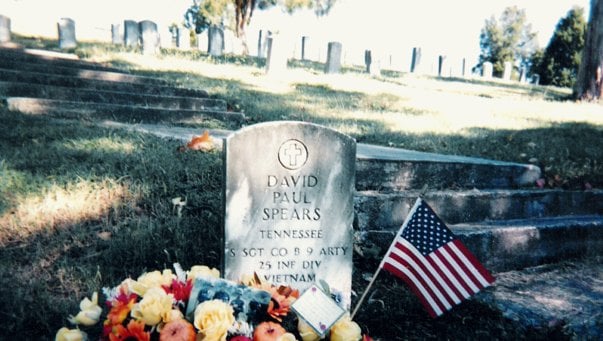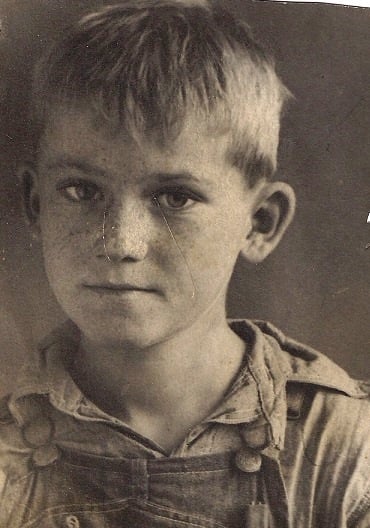The Veteran
Butterbean sits at The Veteran’s bedside. She’s a junkyard dog. The Veteran pulled her from underneath a trailer parked up at Ault’s Auto Parts and in so doing earned her companionship, something she so seldom grants, seeing how she truly is a junkyard dog down to her very core.
Butterbean wears a perpetual scowl upon her brow. She’s worried about him, and rightly so. The Veteran wears a hospital gown, even at home. That ring he designed, the one with the Manchu Golden Dragon crafted from diamonds, is in the safe in his office. He worked with a big city jeweler on the design for that ring. He’d sketched it out just as he wanted it. He was so proud of that fancy ring and all it represented.
It bears his name, engraved in gold, and a tiny replica Purple Heart on one side and a flash of lightning, the insignia for the 25th Infantry Division on the other. It has that horrible date – May 28, 1970 – raised in relief so that a fellow can rub a thumb and forefinger across it and recall those events even while carrying on a conversation with somebody about something totally unrelated, like how the garden is doing this year or the gains in the stock market, not that there have been many of those lately.
But the Veteran can’t talk much these days. If he’s worried about the stock market and the hits he’s taken there he never says. Mostly he lies in the hospital bed, the one with the gel mattress that keeps him from getting bad sores, in the sun room of his Tennessee home staring up at the ceiling fan. Or maybe, hopefully, he sees the lights and spirals of heaven. The gate isn’t that far off now, just a few days or less up the road.
He doesn’t ask to be fed, though he’ll eat plenty enough when the Little Woman, who is his wife of 35 years, stands by his bed and spoons up bites of potatoes and applesauce for him. The hands on the clock move slowly as she leans over him, offers a pain pill and says, “You swallow that now.”
“No,” he says, firmly, but he swallows anyway.
The Veteran was never one to take instructions from others. He still doesn’t like to be bossed around.
“I’m going to take your teeth and clean them,” she says, pulling out his lower choppers first.
The Veteran is sixty-years of age, but he’s had false teeth since he was twenty. He lost the ones God gave him in that gun battle near the Cambodian border when a sniper blew off his lower jaw and killed Doc, the medic who yanked him to safety and died doing it.
Doc had a young wife back home. She was pregnant with the couple’s baby daughter. She raised that girl with help from her family and Doc’s. She’s never remarried.
The Veteran left the battlefield that day – May, 28, 1970 – and never returned, except in that place of his mind where it seems he can never get away from it all. He spent the next 19-months at Walter Reed relearning things a toddler knows how to do: how to talk, how to swallow, how to chew, how to drink from a cup, and how not to dribble while doing any of the aforementioned tasks.
If he could will death, the Veteran would have died that day in the battlefield, alongside the medic. If he trusted you, and he had the ability, which he doesn’t now, he’d tell you that he spent too much of his life, wishing it all away.
Survivors’ guilt the experts call it. Post-Traumatic Stress Disorder. PTSD for short.
The Veteran didn’t have any idea what to call it. For years, he couldn’t talk about the darkness that made him such a hard person to live with. Lucky for him he married a patient woman, one that loved him in spite of himself. He never told her but he’d sometimes tell others that the Little Woman was a godsend. Without her by his side, he’d been dead a long time ago. He should have told her. She needed to hear those words.
She’s taken time off from her job to tend to him. Her days are spent at his side, spoon-feeding him, cleaning his teeth, turning him, bathing him, covering and uncovering him, and trimming the beard he grew as a young man to cover the hideous scars that sniper inflicted.
He doesn’t need a ring to remember that day. He’s remembered it every single morning for decades now. Every time he looked in the mirror and put in his teeth.
Sometimes he asks her, “Where’s my stuff?”
She knows exactly what he’s talking about. It’s that way with people who’ve been partners for near about a lifetime. She goes to the safe in his office and turns the black-and-white dial, listening for the click of the code. Then she gathers his stuff to carry back to the sunroom for him.
His stuff consists of his billfold and that ring that he designed before that trip to the Vietnam Memorial Wall in D.C. where he met up with Doc’s grown daughter and her momma.
The three of them read Doc’s name together at a Veterans Day ceremony. They stood there in the dark, shivering from the cold and the grief, and read from a long list of names. It takes four days of reading 24-hours around the clock to get through the complete list of over 58,000 names of men and women killed-or-missing-in-action. The Veteran wore his leather coat and his cap with the red-yellow-and-green band across it. Colors from the South Vietnamese flag, colors meant to represent a freedom that existed in ideology only.
Ideals are the things that Congress and knuckleheads claim to draft war over. During The Veteran’s era, men went to war because they were ordered to go, they didn’t have a choice. They fought that war mostly for the sake of getting their buddies out alive.
Failing to do that, they never forgive themselves.
The Veteran is an excerpt from Will Jesus Buy Me a Doublewide? Zondenrvan, 2010.












